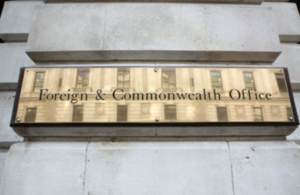Second evacuation plane to depart Wuhan on Sunday

The FCO wants to ensure that all British nationals in Hubei province contact our dedicated team to register if they want to leave on the flight on our 24/7 number +86 (0) 10 8529 6600, or the FCO in London on (+44) (0)207 008 1500
The Foreign and Commonwealth Office will charter another civilian aircraft to help British nationals and their dependants leave Wuhan for the UK. The charter flight is expected to leave in the early hours of Sunday morning local time (9 February) to land at RAF Brize Norton.
The FCO wants to ensure that all British nationals in Hubei province contact our dedicated team to register if they want to leave on the flight on our 24/7 number +86 (0) 10 8529 6600, or the FCO in London on (+44) (0)207 008 1500.
On the flight there will be a small number of medics to provide support to passengers, if required, and FCO officials will also be on board to provide assistance.
Foreign Secretary Dominic Raab said:
We have been working round the clock to help British nationals leave Hubei province, on UK, French and New Zealand flights.
The Foreign Office is chartering a second and final UK flight with space to help all British nationals and their dependants remaining in Hubei to leave.
I encourage all British nationals in Hubei to register with our teams if they want to leave on this flight.
Notes to Editors:
- All British nationals in Hubei province if they want to leave on this flight should contact our 24/7 number +86 (0) 10 8529 6600 or the FCO in London on (+44) (0)207 008 1500.
- For queries related to the measures in place to support British nationals following their arrival at RAF Brize Norton, media are advised to contact the Department of Health and Social Care on 0333 3201654 (out-of-hours number until 8am), 020 7972 5724 or 020 7972 6023.
Published 4 February 2020
